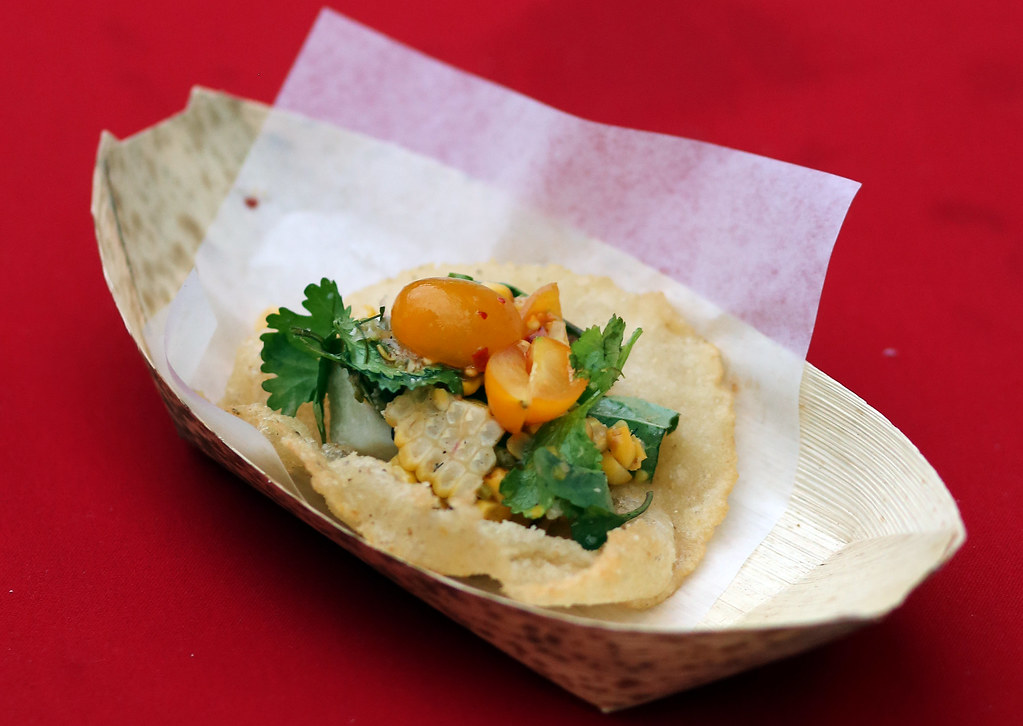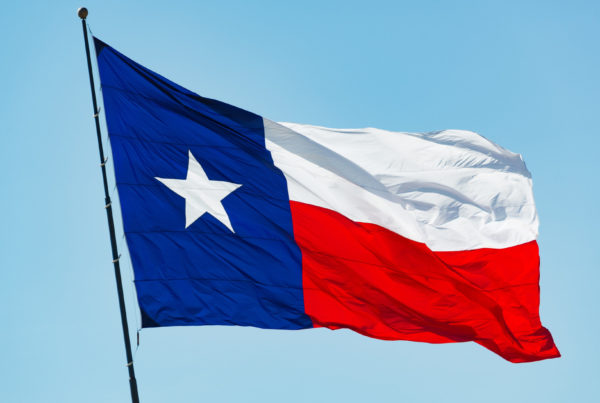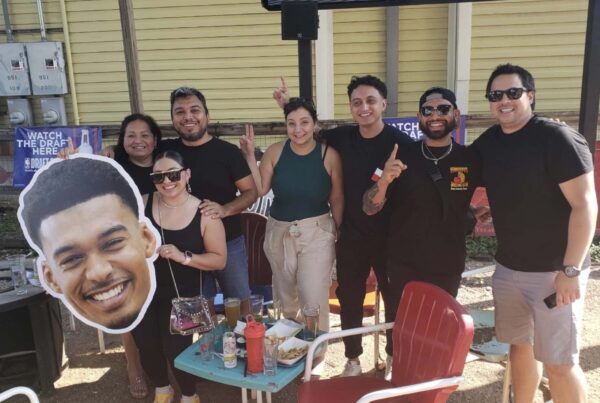Juan Gabriel was much more than a musical icon to many in Mexico and around the world. And yet his bombastic and flamboyant artistry prompted probing questions about his sexual identity.
Taco journalist Mando Rayo, host of the “Tacos of Texas” podcast, says that with machismo so prevalent in Mexican culture, of course it’s present in restaurant kitchens – but so, too, is Juan Gabriel.
“He was full of corazón. It’s one of those things where he, with his singing, with his writing, he poured all his heart into it,” Rayo said. “And even in a time in the 70s where it was not talked about – identifying as gay or LGBTQ, it’s like nonexistent in Mexico, right? And for me, my introduction was my mom, my uncle, that even like the machoist of men cry their hearts out for a Juanga song.”
And taking a cue from such a trailblazer are LGBTQIA chefs who Rayo spoke with for his podcast, like Angel Cabrera, owner of Houston’s Tacos Doña Lena, a three-time winner of the reader’s choice for Best Mexican Restaurant in OutSmart magazine’s Gayest & Greatest awards.
“The Houston community has been there for them,” Rayo said. “And so part of that is this openness, I would say, in introducing people into the food, but also the pride that he has identifying as gay.”
Cabrera told Rayo that his restaurant is a place where everybody is welcome.
“It’s about love, you know. It’s not about, like, shoving the gay agenda on you or whatever. It’s about rights; it’s about that people are still fighting for equality,” Cabrera said. “I can’t even go to other Mexican restaurants and kiss my husband without thinking that someone’s going to look at me crazy. There’s going to be people that are going to hate us, and there’s going to be people that are going to love us – but there’s going to be more love than hate, because love is always going to win.”
Rayo also spoke with Kristen Martinez, who grew up in El Paso and opened MB Foodhouse in Minneapolis. Martinez, who is trans, said that despite the stigma within the food and taco industry, there are also many important allies.
“One of my biggest inspirations and sources of strength is Mexican women that have been in kitchens – like, that’s what I grew up with,” Martinez said. “So it’s like, to me, they were always like the strongest people that I’ve known. And I mean, they are – they carry the burden of everything, and they keep every family strong.”
Though Martinez doesn’t have any formal training, Rayo pointed to the “school of the abuela” as a strong foundation for not just her but many others in the industry.
“When you think about, you know, just growing up and your memories and who’s there to love you, to feed you: [It’s] the matriarchs of Mexican families,” he said. “And I think with Kristen identifying as a trans Latina, putting herself out there, but also honoring and really trying to do good by the names of her grandmother. And so thinking about what that means in reflecting that identity through the food is super important, especially in a space where there’s a lot of machismo carried on by generations of Mexican culture for sure, Latino culture. So let’s figure out how we can think about being more inclusive and letting people be who they are.”















